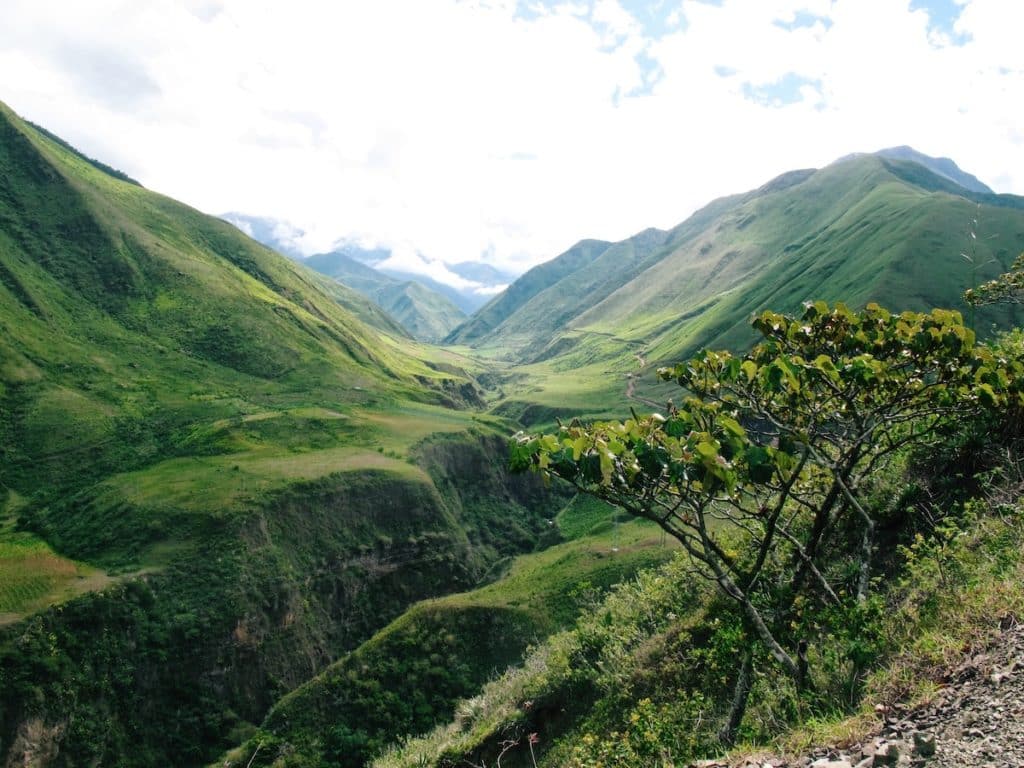It is fair to say that many retirees find themselves in an unfortunate situation of not being able to balance government assistance and their savings with the cost of living in their native country. This can prove very difficult as society forces the elderly to struggle to afford all the things they need like food, utility bills, taxes, and medications.
Looking to move to an area that has a lower cost of living, as well as more favorable weather is a big draw for some retirees. So they may start looking to places around the world. One of the destinations for retirees is the country of Ecuador. Here are some pros and cons to consider when thinking about retiring there:

Advantages of Retiring in Ecuador
(1) Minimal healthcare expenses: Quite possibly, the biggest draw for retirees is healthcare availability, accessibility, and cost. Comparatively speaking, people can save up to 90% on their healthcare needs. The staff at hospitals and medical facilities are generally knowledgeable and personable. A visit to the dentist or a specialist will run about $40, and for $20, a physician could make a house call.
(2) Plenty to do. If a retiree wishes to occupy their days with activities, especially those of the outdoorsy sort, Ecuador borders the Pacific Ocean, so there are many marine-related activities to take part in. There is plenty of rainforests for hikes, volcanoes for visits, and music/dance festivals held around the country.
(3) “The Land of Eternal Spring”: The temperature in Ecuador varies from the comfortable cool of the mountain regions, and the pleasant warmth of ocean side territories, except for about six weeks in the dead of summer.
(4) Safety. Comparatively speaking, while crime is not absent, Ecuador is a relatively safe place to live. Common sense is critical. For example, not wearing flashy jewelry will attract less attention, or making it a point to expose having the right amount of cash, is not a great idea.
(5) Lots of fresh produce. Access to an extensive bounty of fresh fruits and vegetables is one of the best parts of Ecuador. These tend to be available year-round, and by buying from local businesses, retirees can help move along and stimulate the country’s economy.
Disadvantages of Retiring in Ecuador
(1) Utility availability is questionable: Ecuador has all the regular utilities like electricity, water, telephone, and the internet, but their reliability can be dicey. Services can go out unexpectedly, and last for some time. It’s good always to be prepared with a backup supply of water, portable and regular batteries, a USB modem (especially if one is doing some online work for extra cash), and candles, or long term light sources.
(2) Learning Spanish. This one is going to be challenging to get around. While people speak English in some places, mostly in the more city-style regions, Spanish is the country’s primary language, so to communicate for your daily life and needs, Spanish will need to become a normal of anyone moving to or retiring in Ecuador.
(3) Lack of sanitation. A lot of communities do not have active waste management systems, so there is a litany of unpleasant smells that one would need to get used to as well. People dump garbage often dumped onto roads, empty lots, or on the beach. There are also definitive gaps in the medical field to consider, too, such as cancer treatments. From this standpoint, this con of retiring here could be life-threatening.
(4) Being charged more. Negotiation and bartering is a regular part of most financial transactions. Until a new arrival in the country learns to navigate these terms, they get charged a lot more than what is really wanted. It is advised that for house purchases or rentals, only 50% of the asking price is offered. Residents who can able to make more money from foreigners will always try to do so.
(5) Animals. Another aspect that people have a hard time getting used to is the presence of animals. The bugs, as in any tropical climate, are plentiful, and with that, a litany of diseases that anyone living there is at the risk of acquiring. It is imperative to get vaccinated for multiple common diseases roaming in this part of the world, including yellow fever, rabies, typhoid, and meningitis. Additionally, the country has a large number of dogs. Some speculate that dogs outnumber people, and they do not have owners. These animals roam the streets freely, seeking food where they can and can be sick, dangerous, and rip into the trash, causing a mess.
- Tulip Mania – The Story of One of History’s Worst Financial Bubbles - May 15, 2022
- The True Story of Rapunzel - February 22, 2022
- The Blue Fugates: A Kentucky Family Born with Blue Skin - August 17, 2021